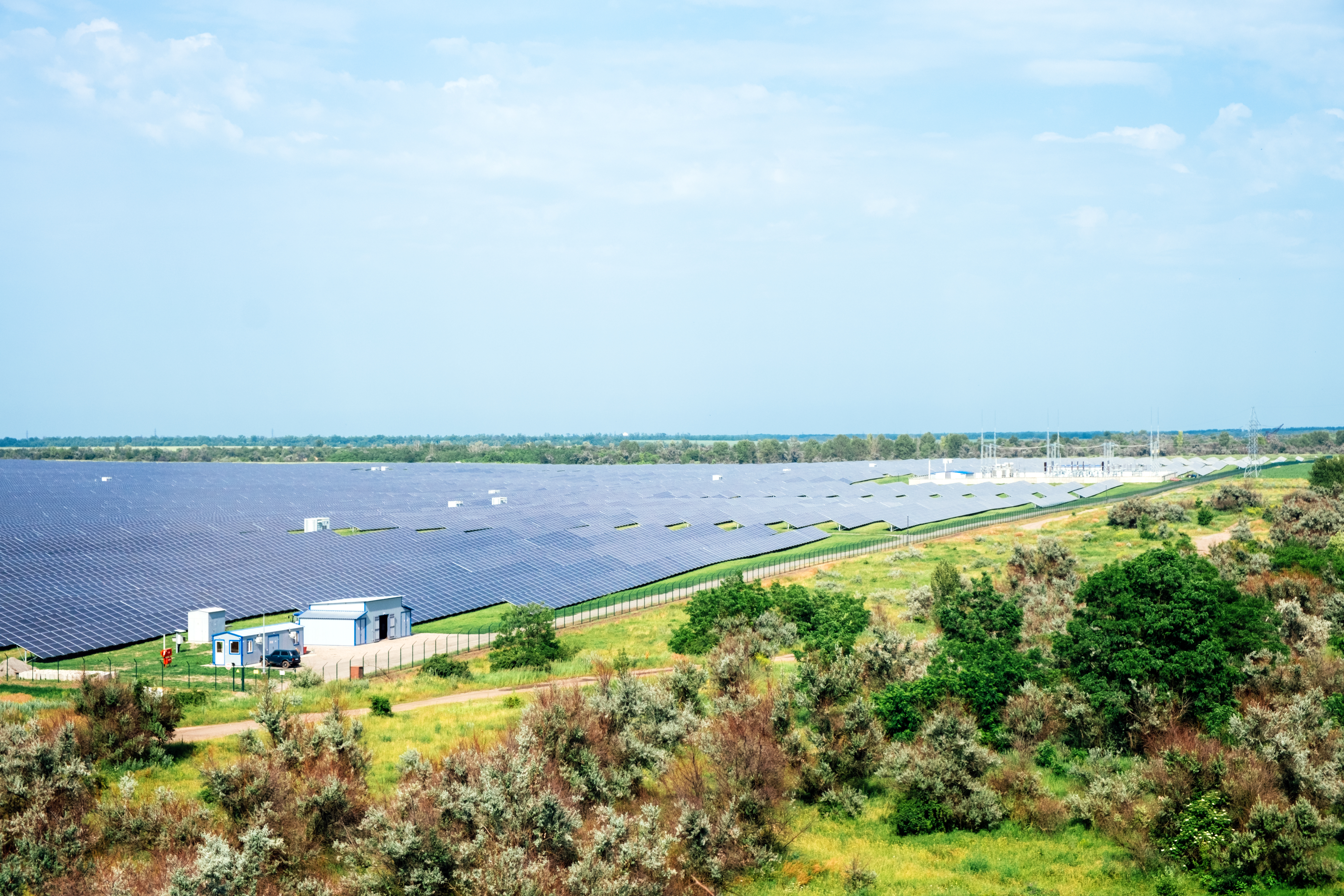11 Eco-Travel Innovations Shaping the Future of Sustainable Exploration
As the world becomes increasingly aware of the environmental impact of travel, the tourism industry is undergoing a transformative shift towards sustainability. This movement, known as eco-travel, is more than just a trend; it’s a necessary evolution to ensure the preservation of our planet's natural wonders. Eco-travel innovations are being meticulously developed to minimize carbon footprints, conserve biodiversity, and promote sustainable practices. These innovations not only aim to protect the environment but also enhance the travel experience by fostering a deeper connection with nature. This article delves into 11 groundbreaking eco-travel innovations that are shaping the future of green exploration, offering a comprehensive overview of how these advancements are revolutionizing the way we travel. From cutting-edge transportation technologies to sustainable accommodation solutions, each innovation represents a step forward in the quest for a more sustainable and responsible tourism industry. Join us as we explore the exciting developments that are paving the way for a greener, more sustainable future in travel.
1. Electric and Hybrid Transportation: Powering a Greener Journey

Electric and hybrid vehicles are at the forefront of eco-travel innovations, offering a cleaner alternative to traditional fossil fuel-powered transportation. These vehicles significantly reduce greenhouse gas emissions, making them an essential component of sustainable travel. Electric cars, buses, and even planes are becoming more prevalent, providing travelers with eco-friendly options that do not compromise on convenience or comfort. The development of efficient charging infrastructure, such as solar-powered charging stations, further enhances the viability of electric transportation. Hybrid vehicles, which combine internal combustion engines with electric propulsion, offer an intermediate solution, reducing fuel consumption and emissions. As technology advances, the range and efficiency of these vehicles continue to improve, making them a practical choice for eco-conscious travelers. The integration of renewable energy sources into transportation systems is a crucial step towards reducing the carbon footprint of travel, and these innovations are leading the way in creating a more sustainable future.
2. Sustainable Accommodations: Eco-Friendly Lodging Redefined

Sustainable accommodations are redefining the hospitality industry by prioritizing environmental responsibility and resource conservation. Eco-friendly hotels and lodges are designed to minimize energy consumption, reduce waste, and promote sustainable practices. These accommodations often incorporate renewable energy sources, such as solar or wind power, and utilize water-saving technologies to decrease their environmental impact. Additionally, sustainable lodgings focus on sourcing materials locally and responsibly, ensuring that their operations support local communities and ecosystems. Many eco-friendly accommodations also engage in initiatives to preserve local wildlife and natural habitats, further contributing to their sustainability efforts. By offering guests a comfortable and environmentally conscious stay, these lodgings are setting new standards for the industry and encouraging travelers to make more sustainable choices. As awareness of the importance of sustainable travel grows, the demand for eco-friendly accommodations continues to rise, driving further innovation and development in this sector.
3. Carbon Offset Programs: Balancing the Environmental Ledger

Carbon offset programs are an innovative solution to the environmental impact of travel, allowing individuals and companies to compensate for their carbon emissions by investing in projects that reduce or remove carbon from the atmosphere. These programs support a wide range of initiatives, including reforestation, renewable energy projects, and energy efficiency improvements. By participating in carbon offset programs, travelers can mitigate their environmental impact and contribute to global efforts to combat climate change. The effectiveness of these programs relies on rigorous verification processes to ensure that the offset projects deliver genuine environmental benefits. As the demand for sustainable travel options grows, carbon offset programs are becoming increasingly popular, providing travelers with a tangible way to reduce their carbon footprint. By integrating these programs into their operations, travel companies can demonstrate their commitment to sustainability and attract eco-conscious customers.
4. Eco-Tourism Destinations: Nature's Own Playgrounds

Eco-tourism destinations are emerging as popular travel choices for those seeking to explore the natural world responsibly. These destinations prioritize environmental conservation and sustainable development, offering travelers the opportunity to experience pristine landscapes and unique wildlife while minimizing their impact on the environment. Eco-tourism destinations often involve community-based initiatives that support local economies and promote cultural heritage, ensuring that tourism benefits both people and the planet. By focusing on low-impact activities, such as hiking, birdwatching, and wildlife observation, eco-tourism destinations provide visitors with an immersive and educational experience that fosters a deeper appreciation for nature. As interest in sustainable travel grows, eco-tourism destinations are becoming more accessible, offering a wide range of experiences for travelers seeking to reconnect with the natural world. These destinations serve as powerful examples of how tourism can be a force for good, promoting conservation and sustainable development.
5. Renewable Energy Integration: Powering Travel Sustainably

The integration of renewable energy sources into the travel industry is a critical innovation for reducing its environmental impact. By harnessing the power of the sun, wind, and other renewable resources, the industry can significantly decrease its reliance on fossil fuels and reduce greenhouse gas emissions. Many hotels, resorts, and transportation providers are adopting renewable energy technologies, such as solar panels and wind turbines, to power their operations sustainably. This shift not only reduces their carbon footprint but also lowers operational costs, making renewable energy a financially viable option. Additionally, renewable energy integration supports local economies by creating jobs and reducing energy dependence. As technology continues to advance, the efficiency and affordability of renewable energy solutions are improving, making them an increasingly attractive option for the travel industry. By embracing renewable energy, the industry can lead the way in promoting sustainable practices and reducing its environmental impact.
6. Wildlife Conservation Initiatives: Protecting Biodiversity

Wildlife conservation initiatives are a vital component of eco-travel innovations, focusing on the protection and preservation of biodiversity. These initiatives aim to safeguard endangered species and their habitats, ensuring that future generations can continue to enjoy the natural beauty of our planet. Many travel companies are partnering with conservation organizations to support projects that protect wildlife and promote sustainable tourism practices. These partnerships often involve efforts to restore habitats, combat poaching, and educate travelers about the importance of biodiversity conservation. By promoting responsible wildlife tourism, these initiatives help to minimize the negative impact of tourism on ecosystems and encourage travelers to engage in sustainable practices. As awareness of the importance of biodiversity grows, wildlife conservation initiatives are gaining momentum, providing travelers with opportunities to contribute to global conservation efforts. By supporting these initiatives, the travel industry can play a crucial role in preserving the planet's natural heritage.
7. Green Certifications: Setting Standards for Sustainability

Green certifications are essential tools for promoting sustainability in the travel industry, providing a framework for assessing and recognizing environmentally responsible practices. These certifications set standards for various aspects of sustainability, including energy efficiency, waste management, and community engagement. By achieving green certification, travel companies can demonstrate their commitment to sustainability and differentiate themselves in a competitive market. Green certifications also provide consumers with a reliable way to identify and choose eco-friendly options, empowering them to make informed decisions about their travel choices. The process of obtaining green certification often involves a rigorous assessment of a company's operations, encouraging continuous improvement and innovation. As the demand for sustainable travel options continues to grow, green certifications are becoming increasingly important, driving the industry towards more sustainable practices and setting new benchmarks for environmental responsibility.
8. Sustainable Food Practices: From Farm to Table

Sustainable food practices are an integral part of eco-travel innovations, focusing on the sourcing, preparation, and consumption of food in an environmentally responsible manner. Many travel companies are embracing farm-to-table concepts, sourcing ingredients locally and seasonally to reduce their carbon footprint and support local economies. Sustainable food practices also involve minimizing food waste, using organic and non-GMO ingredients, and promoting plant-based diets, which have a lower environmental impact than meat-based diets. By offering sustainable dining options, travel companies can enhance the guest experience and align with the values of eco-conscious travelers. Additionally, sustainable food practices often involve educational initiatives that raise awareness about the importance of sustainable agriculture and food systems. As travelers become more aware of the environmental impact of their food choices, the demand for sustainable dining options is increasing, driving innovation and change in the travel industry.
9. Smart Technology: Innovating for Efficiency and Sustainability

Smart technology is revolutionizing the travel industry by enhancing efficiency and promoting sustainability. From smart hotel rooms that optimize energy use to apps that help travelers plan eco-friendly itineraries, technology is playing a crucial role in reducing the environmental impact of travel. Smart technology can monitor and manage energy consumption, water usage, and waste, enabling travel companies to operate more sustainably and reduce costs. Additionally, technology can provide travelers with real-time information about their carbon footprint, empowering them to make more informed choices. Innovations such as virtual reality and augmented reality are also transforming the travel experience, offering immersive experiences that can reduce the need for physical travel. As technology continues to evolve, it presents new opportunities for the travel industry to innovate and promote sustainability, making smart technology an essential component of eco-travel innovations.
10. Community Engagement: Empowering Local Voices

Community engagement is a cornerstone of sustainable travel, emphasizing the importance of involving local communities in tourism development. By empowering local voices, travel companies can ensure that tourism benefits both people and the planet, promoting social and economic development. Community engagement initiatives often involve partnerships with local organizations and businesses, supporting local economies and preserving cultural heritage. These initiatives also focus on education and capacity building, providing communities with the skills and resources needed to participate in and benefit from tourism. By fostering meaningful connections between travelers and local communities, these initiatives create authentic travel experiences that enhance cultural understanding and promote sustainable practices. As the travel industry continues to evolve, community engagement is becoming increasingly important, highlighting the need for inclusive and equitable tourism development.
11. Circular Economy Principles: Reducing, Reusing, and Recycling

The adoption of circular economy principles is a significant innovation in the quest for sustainable travel, focusing on reducing waste and maximizing resource efficiency. By embracing the principles of reducing, reusing, and recycling, the travel industry can minimize its environmental impact and promote sustainable practices. This involves designing products and services with sustainability in mind, extending the life cycle of materials, and minimizing waste through innovative solutions. Many travel companies are adopting circular economy practices, such as using recycled materials in construction, implementing waste-to-energy systems, and promoting the use of reusable products. By integrating circular economy principles into their operations, travel companies can reduce their environmental footprint and contribute to a more sustainable future. As awareness of the importance of sustainable resource management grows, the adoption of circular economy practices is gaining momentum, driving innovation and change in the travel industry.
The innovations explored in this article represent a significant step forward in the quest for sustainable travel, offering a glimpse into the future of green exploration. From electric transportation and sustainable accommodations to wildlife conservation initiatives and smart technology, these innovations are paving the way for a more sustainable and responsible tourism industry. By embracing these advancements, the travel industry can reduce its environmental impact and promote sustainable practices, ensuring that future generations can continue to explore and enjoy the natural beauty of our planet. As travelers become more aware of the importance of sustainability, the demand for eco-friendly options is increasing, driving further innovation and development in the industry. The path forward for green exploration is clear, with eco-travel innovations leading the way towards a more sustainable and responsible future in travel. By working together, the travel industry and travelers can create a positive impact on the environment and contribute to global efforts to combat climate change.








